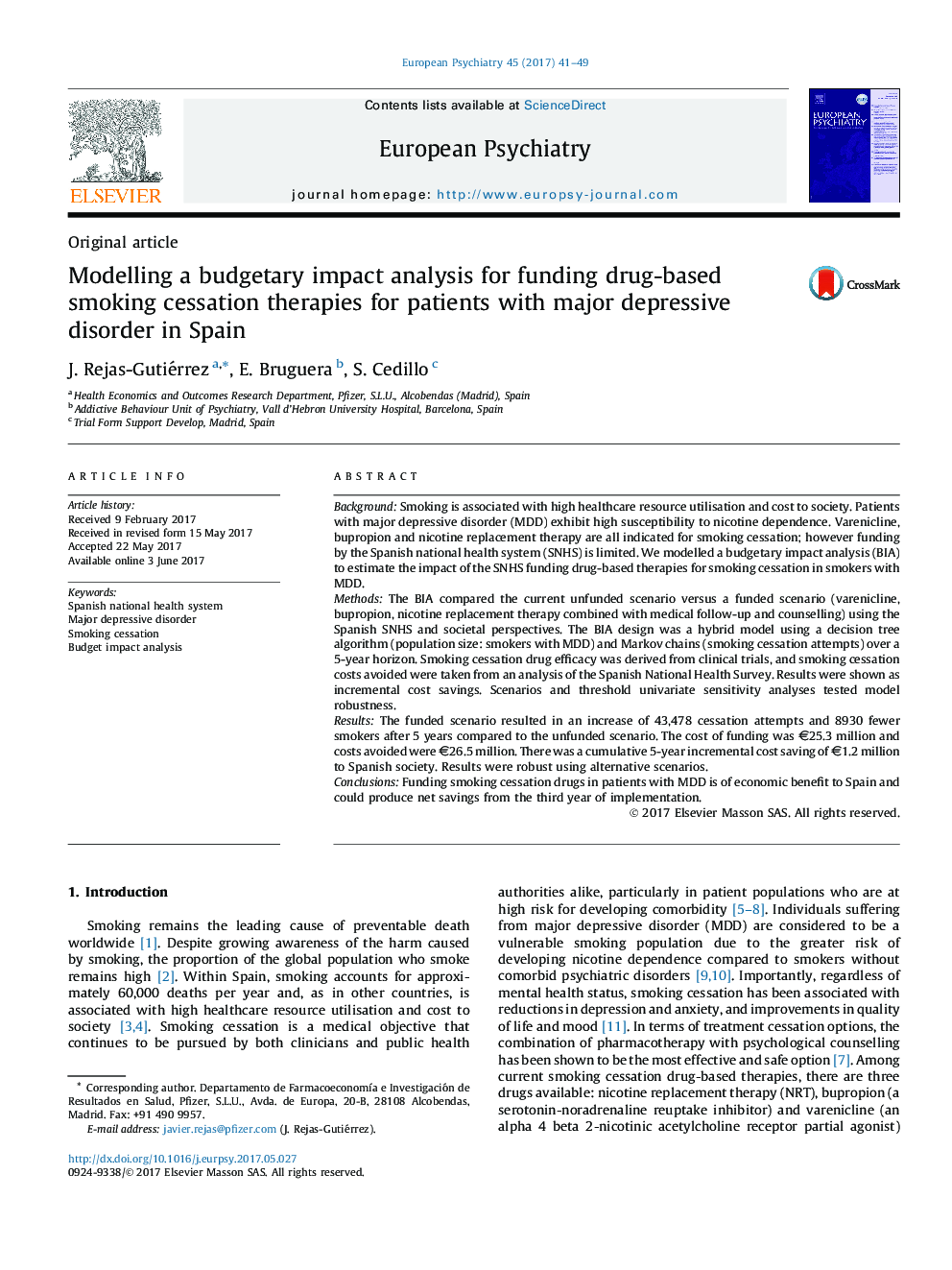| Article ID | Journal | Published Year | Pages | File Type |
|---|---|---|---|---|
| 5721354 | European Psychiatry | 2017 | 9 Pages |
BackgroundSmoking is associated with high healthcare resource utilisation and cost to society. Patients with major depressive disorder (MDD) exhibit high susceptibility to nicotine dependence. Varenicline, bupropion and nicotine replacement therapy are all indicated for smoking cessation; however funding by the Spanish national health system (SNHS) is limited. We modelled a budgetary impact analysis (BIA) to estimate the impact of the SNHS funding drug-based therapies for smoking cessation in smokers with MDD.MethodsThe BIA compared the current unfunded scenario versus a funded scenario (varenicline, bupropion, nicotine replacement therapy combined with medical follow-up and counselling) using the Spanish SNHS and societal perspectives. The BIA design was a hybrid model using a decision tree algorithm (population size: smokers with MDD) and Markov chains (smoking cessation attempts) over a 5-year horizon. Smoking cessation drug efficacy was derived from clinical trials, and smoking cessation costs avoided were taken from an analysis of the Spanish National Health Survey. Results were shown as incremental cost savings. Scenarios and threshold univariate sensitivity analyses tested model robustness.ResultsThe funded scenario resulted in an increase of 43,478 cessation attempts and 8930 fewer smokers after 5 years compared to the unfunded scenario. The cost of funding was â¬25.3 million and costs avoided were â¬26.5 million. There was a cumulative 5-year incremental cost saving of â¬1.2 million to Spanish society. Results were robust using alternative scenarios.ConclusionsFunding smoking cessation drugs in patients with MDD is of economic benefit to Spain and could produce net savings from the third year of implementation.
